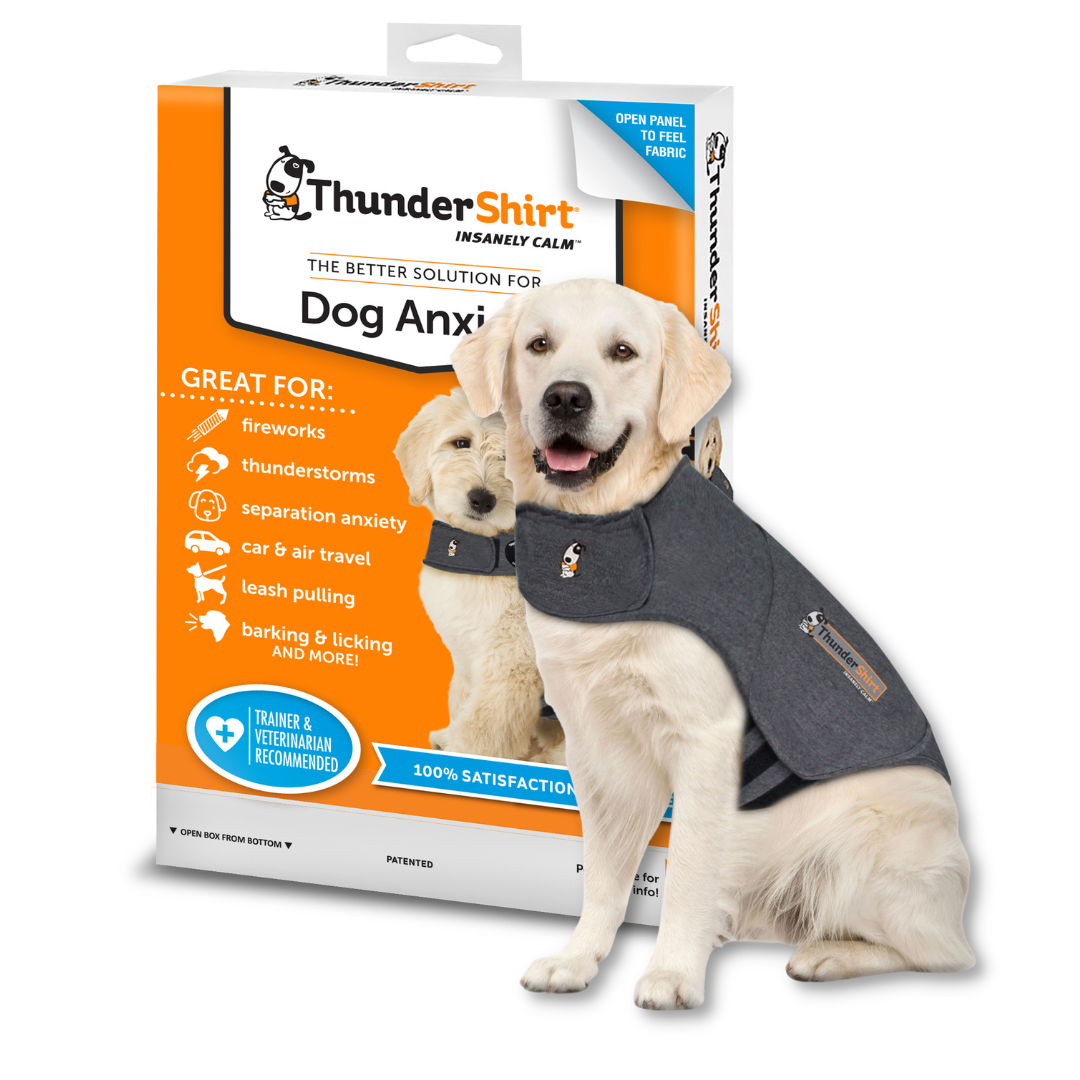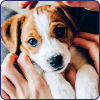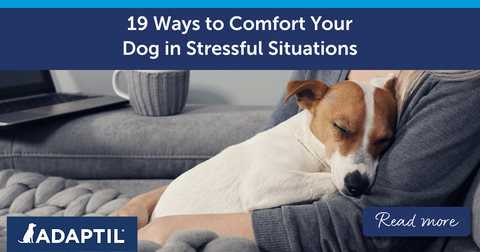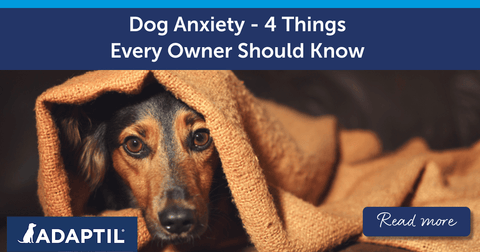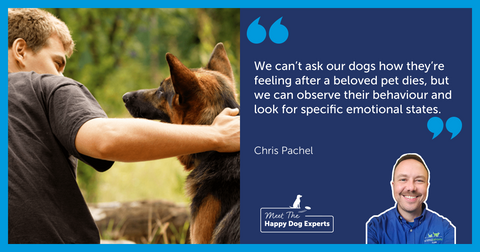Want to subscribe to our blog?

Your Puppy is 1 Year Old in Dog Years! Here's What They Should Be On Their Way To Doing
Written by Adaptil, published on April 18, 2023
You may have heard that approximate rule that as dogs develop at a faster rate than humans, they'll have an age in 'dog years' vs human years. And once your pooch is one whole human year old, you might consider them to be a teenager in dog years - around 15 depending on their breed.
So, once your new pup is just a few weeks old, they'll be the equivalent of 1 year old in dog years - exciting! How will you celebrate their birthday? Perhaps by giving them a special treat or taking them on their favourite walk?
You probably already started spending time together, and you're both beginning to get to know each other's personalities! So what should your pup start learning and how can you help them with their training?
6 Things Your Pup ShouldBe On Their Way To Doing
There's not time to lose!
- Your pup should be wearing their ADAPTIL Junior Collar (replaced every month) to support their learning; this promotes better socialising and can help them get used to being around other dogs.
- Your pup will soon be able to sleep through the night with no whining or barking. Although it may take a while for them to get used to their new surroundings, they will soonbe comfortable getting some shut-eye alone.
- Your pup should be on their way to being house trained! If there are a few accidents here and there you can ignore them, as it's not unusual, but if the accidents become frequent you may want to find out the cause. It may have just become a habit, but may also be something that needs to be checked by a vet.
- Does your pup know when you're calling them, and respond to their name? Your puppy should start to recognise their name when called.
- Your pup should soon start training to lead walking. Hopefully, your pup will be getting the hang of the lead and collar. The aim is to have a dip in the lead when you are walking so that it is loose. Your pup should be close by you when walking, without pulling you along! To deter pulling, stop or turn in a random different direction. Do not let the pulling dictate where you are going - and your pet will soon learn that it's best to walk calmly by your side.
- Is your dog calm? To ensure that they are not overly excitable about the thought of a walk whenever they see the lead and collar, put them on your pup randomly when you're at home. Then they'll understand that the lead doesn't always mean a walk, and will become less excitable.
Get Social With Your Pawsome Pal!
Help your pup grow in confidence
You will shortlymaster the basics of puppy training and this will help your pup's confidence. Puppy classes are an excellent way to train your pup and help them to learn and develop into a confident, outgoing dog. Puppy schools are designed for pups aged 8 to 16 weeks old and are a fun way to bond with your puppy during their most important developmental period - as well as providing the opportunity for your pet to experience new environments and other dogs.
Reinforce good behaviour
As your pup gets used to experiencing new places and realises that they don't need to be scared, this will boost their confidence. Being rewarded for dealing with situations well, will help your pup make positive associations - for example, when meeting new people, strangers, and other new puppy friends. In future, this positive association will create calm reactions and leave you with a confident dog in any environment.
Socialisation is an important step for your doggo
The socialisation phase is such an important stage for your puppy. This is where your pup will learn to perceive situations, kids, people, animal, transport, crates, sounds etc. as normal and not something scary. You should expose your pup to many different situations and environments in a safe, controlled, and calm way. Reward positive, calm and relaxed responses or even no response at all to something new.
As well as socialising your dog, make sure that you provide regular training sessions too; even though lots of different training sessions take time and patience, the hard work will pay off and it is very important that you continue. Follow the pup training golden rules: keep sessions short but repeat often, reward good behaviour, never punish your pup, and be patient as well as consistent (make sure the whole family is on board with their training)! Support your pup so that they learn that the situations they'll encounter in modern daily life are normal and nothing to worry about.
Following our expert tips will help to ensure your bond with your dog goes from strength to strength.
Make sure to join our community for weekly advice from our dog behaviour experts as well as product offers and competitions.
 Related Posts
Related Posts
Legal notice The information collected is intended for Ceva Santé Animale and the group in order to manage your requests. This information can be shared with service providers in order to organize their management. In accordance with the General Data Protection Regulations, you have the right to access, rectify and limit the processing of your data. You can also, in certain cases, object to the processing, withdraw your consent and request the deletion and portability of your data. For any request in relation to your personal data, please visit this page.




















